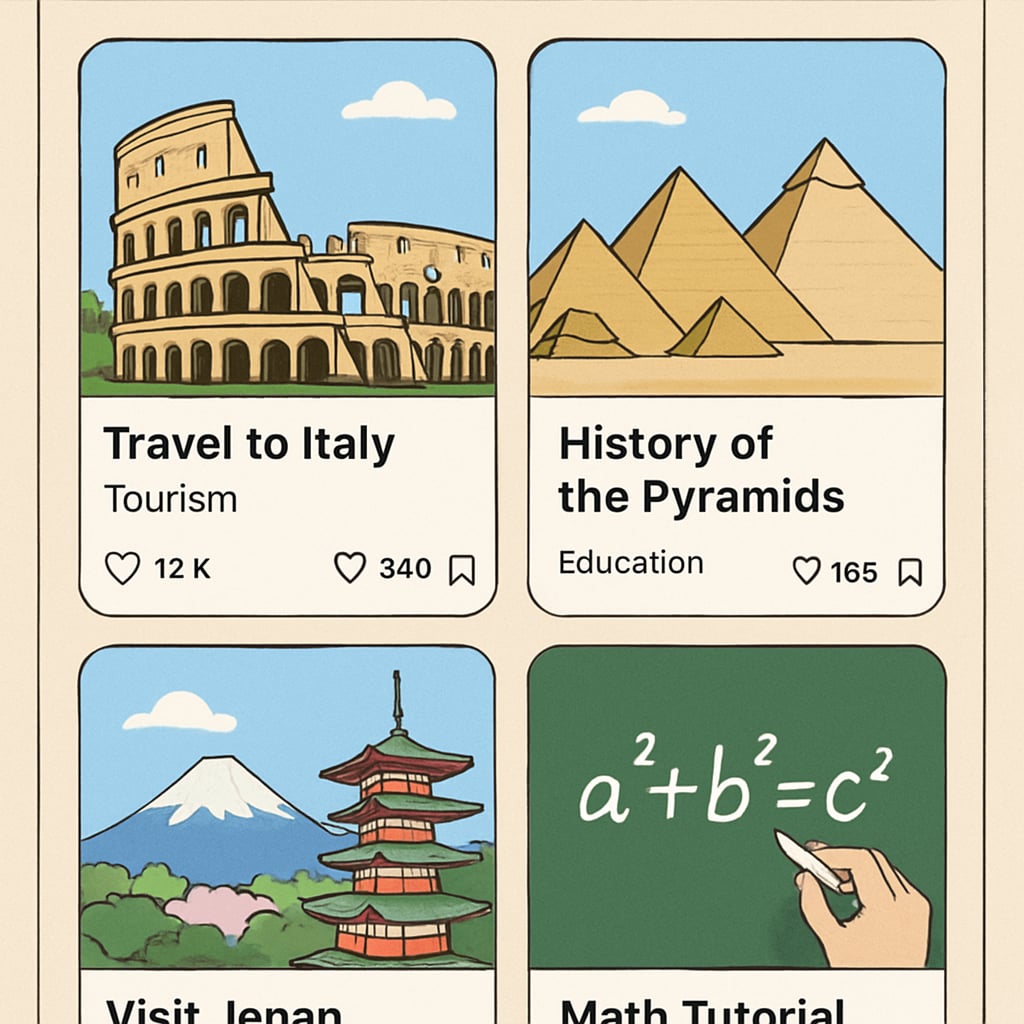The rise of short video platforms like TikTok and Instagram has transformed how people consume information, make decisions, and interact with content. This trend has also significantly influenced fields such as tourism and education. A master’s thesis study is currently seeking participants for a survey to explore the impact of short videos on tourism decision-making processes. By contributing to this research, participants can help uncover valuable insights into how digital media shapes choices in travel and education.
How Short Videos Are Reshaping Tourism and Education
Short videos have become a powerful tool for delivering engaging and visually rich content. In tourism, these videos allow users to virtually explore destinations, experience cultural highlights, and assess travel options—all within seconds. For education, the role of short videos is just as transformative. Platforms like YouTube and TikTok are increasingly used to simplify complex concepts, provide interactive lessons, and inspire students to learn creatively.
For example, parents exploring educational institutions may rely on short video reviews or virtual tours to make informed decisions. Students, on the other hand, use educational clips to supplement classroom learning or to prepare for exams. As a result, short-form video content is influencing not only individual choices but also broader trends in these sectors.

The Impact of Short Videos on Decision-Making
One of the key aspects of the master’s thesis survey is to understand how short videos are perceived in decision-making contexts. In tourism, short videos offer convenience and accessibility while reducing the need for extensive research. Travelers rely on curated clips to discover hidden gems or plan itineraries. Similarly, parents and educators are turning to short-form content as a quick and reliable source of information about schools, extracurricular programs, and teaching methods.
In addition, the survey aims to explore the psychological impact of short videos. Do they create a sense of trust and authenticity in the viewer? Are they more persuasive than traditional media formats? These are just some of the critical questions the study seeks to answer.

Participating in the Research: Your Contribution Matters
The master’s thesis survey invites participants to share their experiences and opinions regarding short videos and their influence on decision-making. By joining this study, you will help researchers identify patterns and trends, paving the way for future improvements in content creation and media strategy.
- Who can participate? Individuals who have used short videos for decision-making related to tourism or education.
- How to join? Simply fill out the online survey provided by the research team.
- Why participate? Your insights will contribute to academic knowledge and practical applications in digital media.
In addition to supporting academic research, participants can also gain a deeper understanding of how their media consumption habits influence their decisions.
Strategic Implications for Educators and Tourism Professionals
The findings from this research can offer actionable strategies for educators and tourism professionals. For educators, leveraging short videos as a teaching tool can enhance engagement and improve learning outcomes. For tourism businesses, creating compelling video content can attract more visitors and encourage bookings.
Some practical recommendations include:
- For educators: Use platforms like YouTube to host bite-sized lessons or interactive tutorials.
- For tourism professionals: Invest in high-quality video production showcasing unique experiences and cultural highlights.
- For parents and students: Explore verified video content to make informed decisions about education and travel.
As a result, both sectors can harness the potential of short videos to drive engagement and improve decision-making processes.
Readability guidance: Short paragraphs and bullet points enhance clarity. Transition words like “therefore” and “for example” improve flow, while active voice keeps the content engaging.


